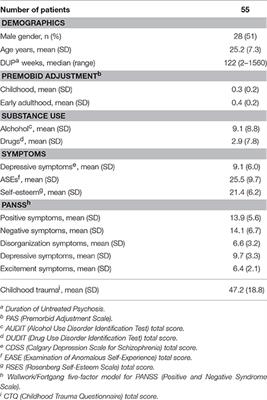EDITORIAL
Published on 19 Dec 2017
Editorial: Embodying the Self: Neurophysiological Perspectives on the Psychopathology of Anomalous Bodily Experiences
doi 10.3389/fnhum.2017.00631
- 4,074 views
- 5 citations
32k
Total downloads
310k
Total views and downloads
EDITORIAL
Published on 19 Dec 2017
ORIGINAL RESEARCH
Published on 27 Jul 2017

GENERAL COMMENTARY
Published on 21 Jul 2017

REVIEW
Published on 22 Jun 2017
ORIGINAL RESEARCH
Published on 02 Jun 2017

ORIGINAL RESEARCH
Published on 17 May 2017

PERSPECTIVE
Published on 16 Mar 2017

ORIGINAL RESEARCH
Published on 13 Mar 2017

OPINION
Published on 28 Feb 2017
ORIGINAL RESEARCH
Published on 07 Nov 2016

ORIGINAL RESEARCH
Published on 27 Sep 2016

HYPOTHESIS AND THEORY
Published on 26 Sep 2016